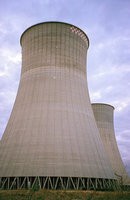
While Japan has backpedaled on its initial post-Fukushima plan to phase out nuclear energy entirely by 2040, it remains on the path to wean itself off atomic power in direct response to last year’s nuclear disaster. With public anti-nuclear fervor showing little sign of abating since March 2011, policymakers continue to be under attack for not moving aggressively enough to shut down reactors more quickly and permanently. Yet even the gradual phase-out of nuclear power could be fatal to Japan’s economic as well as political future, as the country grapples with regaining its foothold in the global economy. One major […]


